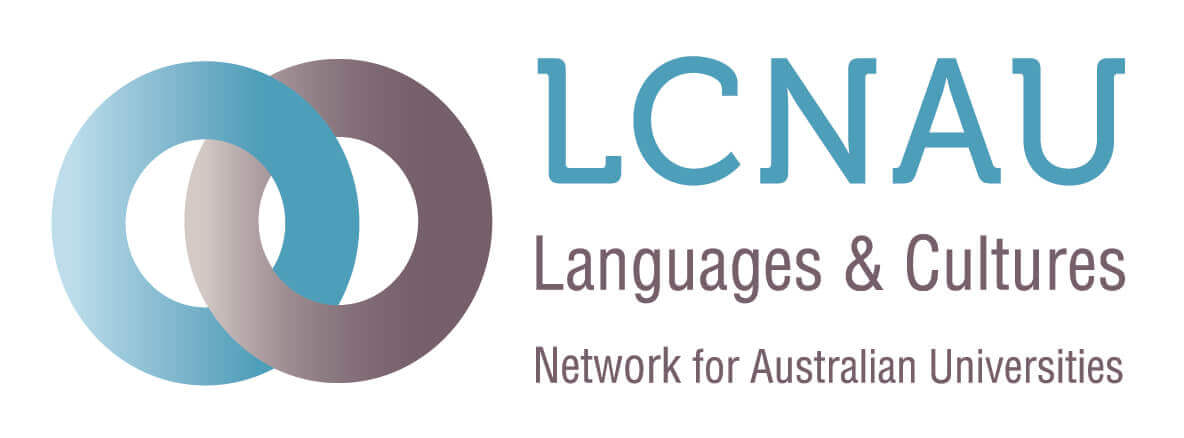The LCNAU congratulates with the recipients of the 2025 Patji-Dawes Award. The 2025 awardees are – Jannette McCormack (Arrernte, ASCL) – Hiroko Oashi (Japanese, RMIT)
Languages and Cultures Network for Australian Universities
LCNAU
Find out what languages are available to study at any Australian university by clicking “Explore your language options now” on the National Languages Campaign’s website.
The University of Sydney succesfully hosted the 2024 LCNAU Colloquium
From 27–29 November 2024, the Eighth Languages and Cultures Network for Australian Universities (LCNAU) Colloquium was hosted at the University of Sydney on the theme
Celebrating Language, Culture, and Learning at LCNAU Colloquium
In November 2024, a group of five passionate First Nations educators undertaking Batchelor Intitutes’s Certificate IV in Teaching a First Nations Language presented at the
Discover our Clusters
Teaching Indigenous Languages in Australia Universities
There is a great deal to discuss about how training in Indigenous languages at tertiary level is to be done effectively, and in a way that enriches our understanding of Indigenous languages. This cluster is designed to inform and facilitate that discussion.
Work Integrated Learning and Languages Studies
This cluster seeks to explore the role of WIL in language studies from practical and theoretical points of view. It aims to facilitate the emergence of common research projects, to design and disseminate educational placement models and guidelines, as well as to promote WIL practices across the tertiary sector.
Translating and Interpreting Cultures and Languages
The TICL cluster provides a forum for discussion of translation and interpreting, and their use in the foreign language classroom and in the training of language and culture professionals.
Intercultural Language Teaching and Communication
The ILTAC cluster brings together researchers working towards a broader understanding and enactment of the intercultural dimension in language and culture education in tertiary environments.
- Present at LCNAU’s biennial colloquium
- Submit papers for consideration in LCNAU publications
- Contribute to LCNAU’s research and teaching clusters
- Participate in LCNAU activities (mini-colloquia, workshops, etc.)
Find out about our upcoming and past colloquia.
